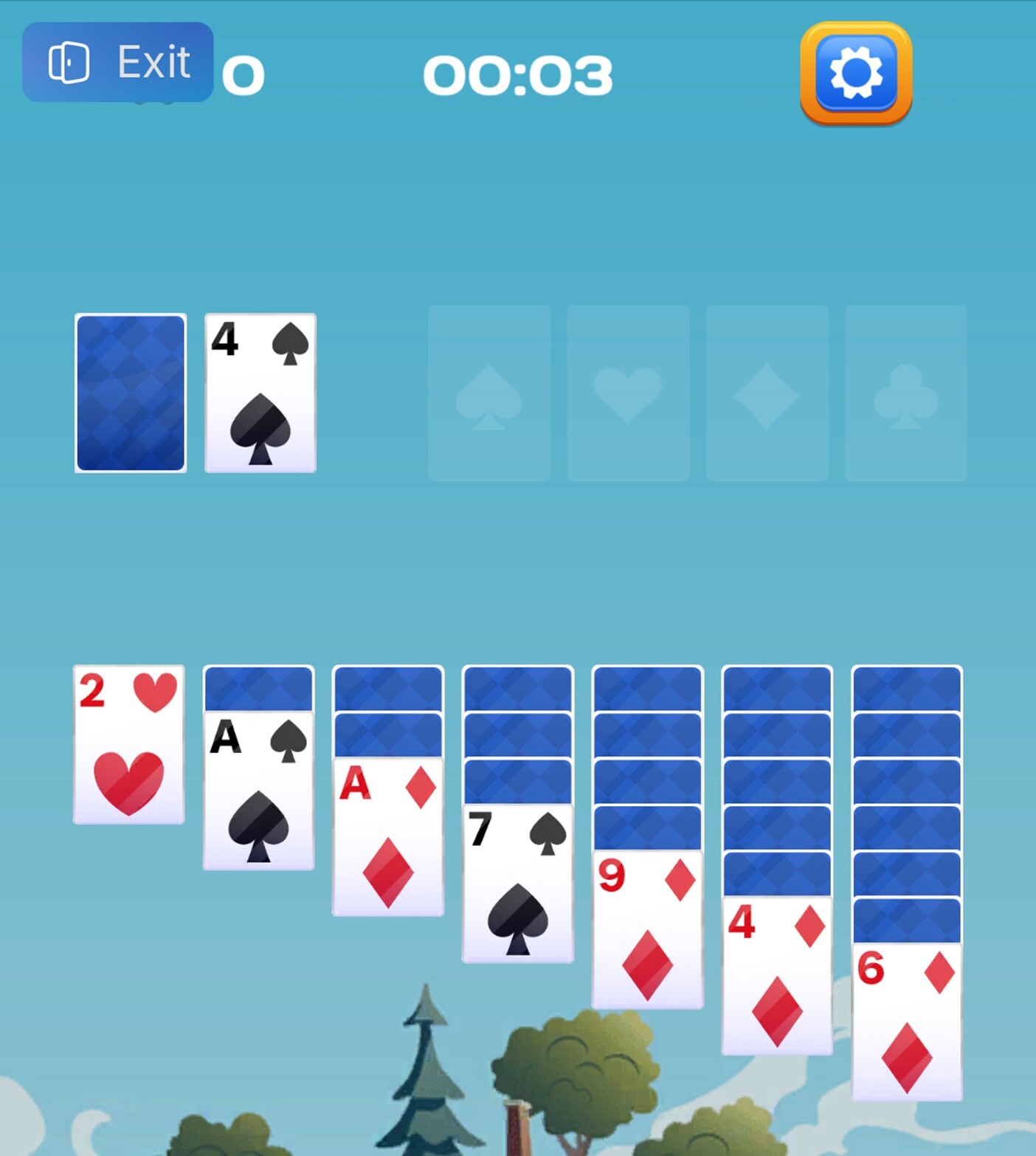Many people think Solitaire online is just a way to pass the time, but that’s not true. Brain function research has shown that it actually strengthens important mental processes.
Its simple gameplay calls for a sequence of little decisions and the application of many techniques. These activities teach the brain to be sharper, more adaptable, and more focused. 
Solitaire and Executive Function: What’s the Connection?
Executive function is a set of mental skills that enable the brain to manage ideas, behaviors, and emotions in order to complete tasks. These abilities include working memory, inhibitory control, and cognitive flexibility, which brain uses for planning and focusing.
Solitaire directly develops these skills. When playing the game, players have to think ahead. They must remember where certain cards are, resist making impulsive moves, and change strategy based on how the game is going.
These actions are not random. They map directly to the same parts of the brain used when solving problems, making decisions, or controlling impulses in real life.
The 3 Executive Brain Functions Trained by Solitaire
Solitaire exercises these three major executive functions. They are:
- Working Memory. Holding and using information in your mind.
- Inhibitory Control. Holding back impulses and making thoughtful decisions.
- Cognitive Flexibility. Switching between ideas or changing plans when needed.
Every round of Solitaire activate these cognitive skills as players make choices, track what’s going on, and adjust their approach.
1. Working Memory
Working memory is where the brain writes down things it needs to remember for a short time. Solitaire needs the working memory to keep track of concealed cards, the deck's arrangement, and which cards the player has already found.
Players may not be able to see all of the cards at once, but they must plan their moves based on what they recall. This mental monitoring helps to exercise and develop working memory. That skill is applied every day to follow directions, conduct mental maths, and hold conversations.
2. Inhibitory Control
Impulse control helps players think before they act. When a player sees a move that first appears to be great they have to make sure it won’t jeopardize better moves going forward. Effective players learn to control their impulses. This ability enhances patience and self-control, which have use in social, professional, and educational settings.
3. Cognitive Flexibility
Cognitive flexibility means one can switch up how one thinks. If one plan doesn’t work, you come up with a new one. In Solitaire, the layout changes with each move and players must adapt quickly and be ready to change your strategy, and try something different. This mental flexibility helps in real life when plans change, problems appear, or new information comes in.
Other Ways Solitaire Trains the Brain
Solitaire also boosts several other mental skills that support clear, careful thinking like:
Visual Processing
Players look for legal moves in the card configuration when playing solitaire. This teaches the brain to identify patterns in images. Players learn to recognize numbers, suits, and colors and make snap decisions depending on what they see. This helps them react faster in other situations, such as driving or participating in sports.
Attention to Detail
Players that pay close attention are rewarded in solitaire. A game can be ruined by a single missed move. Before moving, players learn to pay close attention and pick up on minor details. This improves concentration and helps the brain avoid thoughtless errors.
Long-Term Planning
Thinking ahead is often necessary to win at solitaire. Delaying a move now may allow players to make more efficient ones later. This builds long-term planning, which is helpful in real life when establishing objectives or resolving significant issues.
Delayed Gratification
You could lose interest in the game itself after a quick win. Delayed gratification teaches the brain to make intelligent decisions rather than just quick ones. This can be used for studying, budgeting, and maintaining a healthy diet.
Error Awareness and Correction
Making mistakes is part of the game. But each game shows you how and why you lost. The skill for this is metacognition: the ability to think about one’s thinking. Players learn to spot errors, understand them, and fix them next time. Over time, this leads to smarter play and better learning habits.
Tips to Maximize the Brain Benefits of Solitaire
Try these simple tips to get the most mental benefits from Solitaire:
- Short, regular sessions are better than long, rare ones. Daily play keeps the brain sharp without burning you out.
- Focus fully to train your attention and decision-making.
- Reconsider your strategy and mistakes regularly. This helps improve faster.
- Play other solitaire variations — they also improve cognitive function.
Challenge Your Brain with Solitaire!
Solitaire is a fun way to pass time and a powerful tool for training your brain. Every game works your memory, focus, patience, and flexibility — all skills you use in real life. Just open a deck, start a game, and let your brain exercise.







